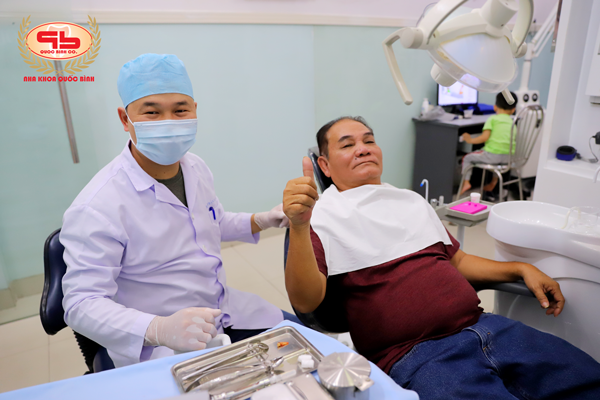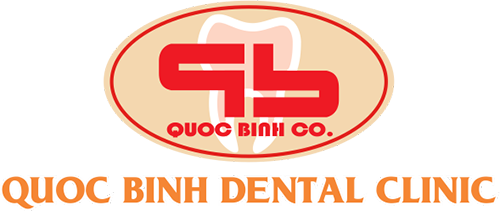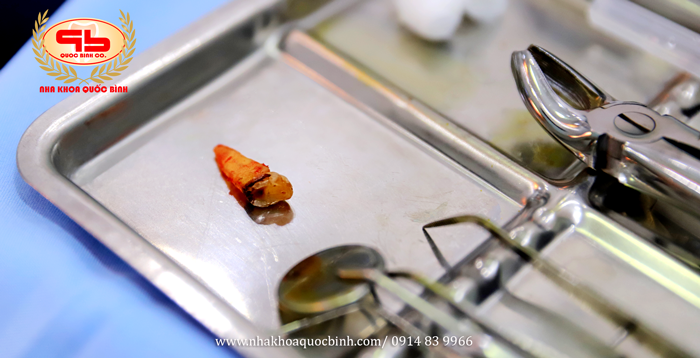Removal of teeth is using the right tool to remove the tooth from the jawbone. However, is the process simple or not? Let’s find out shortly.
When teeth show signs of damage, depending on the type of damage and the extent that the dentist will have to deal with it appropriately.
For teeth that are too damaged to be repaired, they need to be removed. There are also a number of other situations where removal of teeth is a sensible option.
Such as:
- Teeth wobble a lot, no way to retain.
- Excess teeth, teeth grow underground in the jawbone
- Baby teeth do not fall off at the right time.
- Wisdom teeth are inclined
- Teeth need to be extracted in orthodontic braces
- And in patients undergoing radiation therapy in the jaw area can also remove radioactive teeth.
How is the removal of teeth?
Currently we have 2 types of tooth extraction
@ Removal of teeth using conventional techniques.
Applied to teeth visible to the eye; Teeth have grown and are clearly visible in the mouth.
The technique of extracting these teeth is usually not too difficult; Any dentist can do it.
Specialized tools are usually dental elevator or tooth extraction pliers.
@ Removal of teeth with minor surgery (dental removal surgery)
This is a more complicated procedure than conventional tooth extraction. Often applied to remove the ingrown teeth inside the jawbone.
The performer is usually a doctor capable of surgery.
The implementation process will include the following steps:
- Slit the gums to reveal jaw bone or reveal teeth.
- Sometimes it is necessary to sharpen part of the bone that surrounds the teeth.
- Cut teeth into sections. Then pry or pick your teeth out of there.
Is tooth extraction hurt?
With regular extractions, your dentist will give you an anesthetic. And sometimes tooth extraction just needs to be numbed on the outside (baby teeth wobble a lot)
In dental surgery, the requirements are stricter. The patient needs regional anesthesia, or in cases with special factors, the patient is under general anesthesia.
That way, during the extraction process, you won’t feel any pain even though you still know the impact of the doctor on your teeth at times.
In addition, patients are always instructed to signal by raising their hands when they feel pain during the procedure. This will help the doctor adjust the actions more appropriately.
After removal of teeth, serious instructions should be taken.
Certainly, after completing removal of teeth process, the doctor will guide you on what to do and should not to do. And if you still have any questions, the consultation should be completed before leaving.
Extraction is the removal of a part of the body so you won’t be as comfortable as it is nothing. However, these unpleasant sensations are only mild; And when you follow your doctor’s instructions, that feeling will soon go away.
Usually, your doctor will prescribe pain relievers to make your post-surgery days more comfortable. Remember to take the medicine according to the instructions.
Explore more:
“Answers from dental and facial specialists for tooth extraction patients”
Some important notes after tooth extraction:
Extraction of teeth will inevitably bleed, and the amount of bleeding less or more depends on the nature of each patient.
- After removing your teeth, you need to bite the cotton ball firmly for 30 minutes to apply pressure and stop bleeding. Usually a little pink in the saliva will appear in the first or 2 days; Someone can last for a few more days.
- Do not touch, or tease the blood clot lying in the wound.
- During the first 24 hours, you can use an ice pack to apply to the outside of your cheeks to help reduce swelling and pain. The time to apply ice can be every 20 minutes.
- After the next 2-3 days, you can apply warm water to help blood circulation better.
- Oral hygiene is still normal, but avoid touching the treated area for the first 2-3 days. You can use diluted betadine to rinse your mouth to get rid of some of the bacteria in your mouth.
- The recommended foods are soft and should not be too hot for the first few days. After the discomfort has passed, you can eat and drink as usual.
- In situations where you need stitches in a soft tissue (gum) area, your doctor may use either self-dissolving or just non-dissolving threads. With just undigested, you need to go to the clinic for an appointment so the doctor can remove this thread.
- Do not smoke, drink alcohol … or spit hard after tooth extraction because it will bleed the damaged area.
When to contact a doctor immediately?
- The wound becomes swollen, inflamed that causes pain, fever and constant bleeding, or bleeding that lasts for many days.
- Your tongue or lips are numb for many hours after completing removal of teeth process.
- The place where the tooth was just extracted becomes severe pain
- Promptly contacting and handling well will help you avoid more dangerous risks.

In Vung Tau City, you can go to QUOC BINH dental clinic for free check-up and consultation with specialist doctors.
QUOC BINH DENTAL CLINIC IN VUNG TAU CITY
Chief Doctor – Dr. PHAN QUOC BINH
Facility 1: 19 Pham Hong Thai, Ward 7, Vung Tau.
(Closed every Sunday)
☎️ 09148399 66 / (0254) 383 99 66
Facility 2: 28 Le Loi, Ward 4, Vung Tau.
(Closed every Saturday)
☎️ (0254) 381 83 18
Facility 3: 649 Truong Cong Dinh, Ward 7, Vung Tau
Doctor in charge – Dr. NGUYEN HUU CHIEN
☎️ 0708 649 649
(Closed every Friday)
⏰Working time: 7h30-11h30, 14h-20h30
Fanpage:

